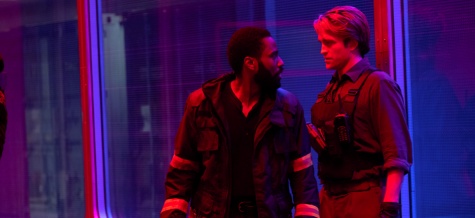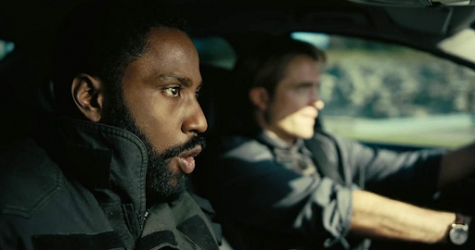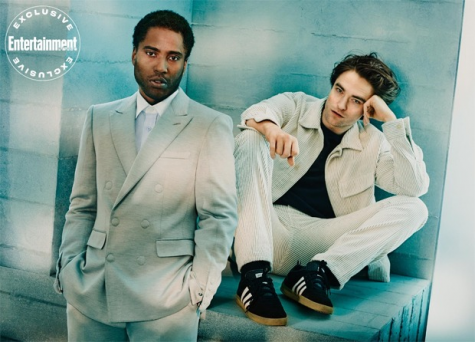
By Clara Helm | Head Editor
September 27, 2020
Viewers everywhere left recently-opened movie theaters in complete astonishment after seeing Tenet. With COVID-19 permanently changing how the movie industry operates, an old crusader of the traditional way of cinema is director Christopher Nolan, who was a major proponent of the reopening of movie theaters for the release of his highly anticipated Tenet on September 3rd.
There are a small number of directors today with the same great track record and consistent style as Christopher Nolan, whose time-centered movies such as Inception, Dark Knight, Interstellar, and Dunkirk have great impacts on movie production and direction everywhere. With most new releases going straight to paid streaming services, a Christopher Nolan sensation was just the right film to entice people back into the theater, many people eager to be immersed again into one of the director’s mind-bending worlds.
Tenet follows an unnamed Protagonist (John David Washington), a special ops agent that has died in the eyes of the government and public, who becomes adopted into a top-secret assignment known as Tenet, where he quickly learns about the threat they face—Inversion (time reversal). The Protagonist teams up with Neil (Robert Pattinson) and the duo tracks down the source of inverted objects to a Russian arms dealer named Andrei Sator (Kenneth Branagh). This leads to a slick and mind-boggling affair about inversion, entropy, and travel across inverted time as The Protagonist and Neil go back and forth between settings from Estonia to Vietnam in an attempt to prevent Andrei’s malicious plan of world destruction using inversion technology.

The movie moves at breakneck speed, but never loses its tension or momentum once in the two and a half hours. As the movie progresses, explosions get louder and the special and practical effects reach new heights. The chemistry between John David Washington and Robert Pattinson is the soul of the movie, as their relationship is complex and multifaceted with underlying ties of tenderness and companionship that leaves the audience emotionally invested. Robert Pattinson exemplifies his ability to embody any role and his performance keeps the humanity of the film accessible when the rest can feel very action-packed. A lasting takeaway of the film takes form in Robert Pattinson’s ending monologue. He concludes “What has happened, happened,” which illuminates the idea to not let your past define you or let you present let you down, but to be an ambassador for your future self.
While some say the film lacks character backstory which creates a no-stakes film, it can be said that Tenet is supposed to be contained within itself, even going so far as to have the lead character nameless to show the viewer the importance of the singular story rather than backstory. To get the full emotional impact of the film, a viewer may have to see this movie more than once. During the first viewing, the brain quickly tries to deconstruct the previous scene at such a rate that when the emotional scenes come around they could seem rushed or careless. Nolan films need time to process; The Protagonist’s selflessness, compassion, and willingness to fight for something beyond himself may have been things that slipped by viewers on the first watch.

Senior Derek Chen enjoyed the movie with friends recently in San Diego County. “[I was] honestly unsure if I liked it or not afterward, however, I determined it was a good movie after I was given time to reflect on it,” Chen said. When comparing the movie to Christopher Nolan’s other work, Chen said it was “not his best, but just something worth appreciating.”
As an avid movie watcher, Senior David Quach was also excited to be able to see Tenet recently. The movie lived up to his expectations, and he even said that it was “Christopher Nolan’s most ambitious movie to date,” putting it in his top 3 Nolan films alongside The Dark Knight and Inception due to his love for Nolan’s use of practical effects and complex storyline. “[I was left with] several questions unanswered surrounding the origins of the characters and the meaning of the film’s ending,” Quach said, “[But I love] being able to look back on films after finishing them as it allows me to make my own thoughts and interpretations.”
Viewers still left theaters with a multitude of questions. How did the film’s science work? What was the film even about? What was Christopher Nolan trying to say? But Nolan is notorious for leaving his audience with lingering mystery, creating an atmosphere that makes you want to come back to his movies again and again. His movies become classics to many, and moviegoers love the thrill of catching new details with every viewing experience. While Tenet has amassed a highly critiqued low figure of $251 million in the box office, John David Washington has teased the possibility of a sequel, saying Nolan has ideas in mind due to the open ending.
Many new cinema releases will follow Tenet‘s release, such as the classic Sci-Fi movie Dune starring Timothée Chalamet and a new James Bond movie No Time To Die. In time the unsureness of Covid-19, the return of the comforting familiarity of seeing a good movie in theaters brings joy and familiarity to many.

Leave a Reply